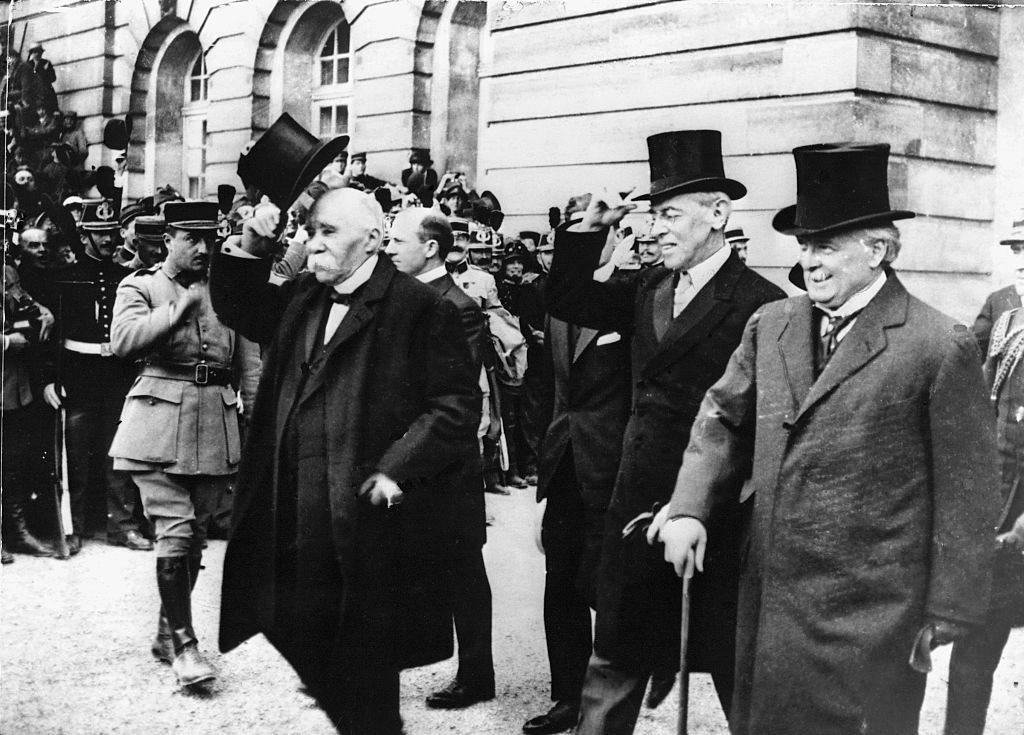Despite the slightly pathetic effort of the departing Biden regime to claim that it is the diligence of the president and his secretary of state that has brought the war in Gaza to the point of a possible complete hostage exchange, the outgoing administration has practically nothing to do with it. The engine of progress is the several times-repeated promise of the president-elect that if American hostages have not been liberated by the precise time of his reinduction into the presidency of the United States, “There will be hell to pay.”
This puts many observers in mind of the initial inauguration of Ronald Reagan as president in 1981: eventually, we will learn exactly what message he had transmitted to the Ayatollah Khomeini about the consequences, if on his entry into the White House, the American embassy hostages had not been released. They were departing Iran on an Algerian airliner as Mr. Reagan gave his inaugural address. The United States possesses the ability to intimidate any country in the world, though its system of government and national consciousness require that the American public believe that there is an element of righteousness in any attempt to intimidate a foreign power. There is no difficulty generating such a climate of public opinion over the hostages seized and other barbarous outrages of Hamas on October 7, 2023.
In this particular case, the clarity of the threat to the Iranian government is magnified by the fact that President Trump explicitly stated in his debate with President Biden that effectively ended Biden‘s political career that he would not tolerate a nuclear-armed Iran. This was on the heels of the assertion by Israeli Prime Minister Benjamin Netanyahu before the United States Congress a few weeks before that Israel would not tolerate a nuclear-armed Iran either.
Even before the change of administration, there has been dramatic evidence in the interregnum between the election and the inauguration of the aberrant conditions in Washington in the last four years. The world has seen the hazards created by an absence of a coherent and rigorously executed official concept of how the United States will deploy its incomparable influence. There can be no doubt that the needless and inexcusable debacle in Afghanistan, when the United States bugged out on the Afghans that had supported the Western mission in that country, and on its Western allies, was a powerful encouragement to the lurid ambitions of Beijing, Teheran, and Moscow.
Biden’s ambiguous comment that the American response to a Russian invasion of Ukraine would depend on whether it was an attempt to occupy the entire country or only steal a couple of provinces was a direct encouragement to the Russian invasion. And the encouragement was amplified by the public assertion on behalf of the administration by the chairman of the joint chiefs of staff, General Milley, that Russia would conquer all Ukraine within a few weeks, and Biden’s offer of asylum to the Ukrainian president and his family on the assumption that they would be fleeing Kiev momentarily.
The response to the Hamas invasion of Israel was also inept: the coy declaration that Israel has “a right to defend itself,” which was construed as expelling invaders, but with practically no right to run any risk of civilian casualties in Gaza, was an unsuccessful attempt to appease American Jewish voters without alienating pockets of Palestinian voters in Michigan and a couple of other states. It was based on the misconception that what had occurred was another border skirmish, and that since Hamas has made it clear that it would never accept the right of Israel to survive, any such premature cease-fire as the administration kept fruitlessly proposing was just a recipe for endless intermittent combat, as well as the implicit endorsement of moral equivalence between a democratic country responding to an act of war and the most barbarous conduct of terrorists.
It has been the determination and skill of Netanyahu as a war leader as well as the prospect of Trump‘s re-election, both supporting the complete extermination of Hamas as a terrorist organization, that has emboldened Israel to persevere so thoroughly against Hamas and Hezbollah which produced the collapse of the Syrian despotism and the expulsion from that country of Iran and the reduction of Russian influence there.
Europeans should reflect on the pandemic of invertebrate and delusional appeasement that has generated such a repulsive level of antisemitism in Western Europe, and has transformed the French and British governments in particular from a stated determination not to tolerate a nuclear-armed Iran to pathetic wails of appeal that the Obama administration-sponsored arrangement with Iran to permit and effectively encourage that country to become a nuclear power at about this time must be resurrected.
The governments of Margaret Thatcher, Helmut Kohl, François Mitterrand, and Brian Mulroney all played important supporting roles in the deployment of euro-missiles, the reunification of Germany, and the successful end of the Cold War. Their current replacements are reflexive appeasers of practically all the enemies of the West. They did respond vigorously, as the United States did in Ukraine, when it became clear that the government of that country would resist Russia with unwavering courage, but none of them has been able to come up with a serious strategy to end that war on an acceptable basis and permit the Western Alliance to begin the essential effort to entice a post-war Russia out of the smothering embrace of China and back into civilized relations with the West.
All of these desirable goals will receive a decisive impetus as soon as Donald Trump has been re-sworn as president.





The mass rape of young girls, British establishment says, ‘So what?’